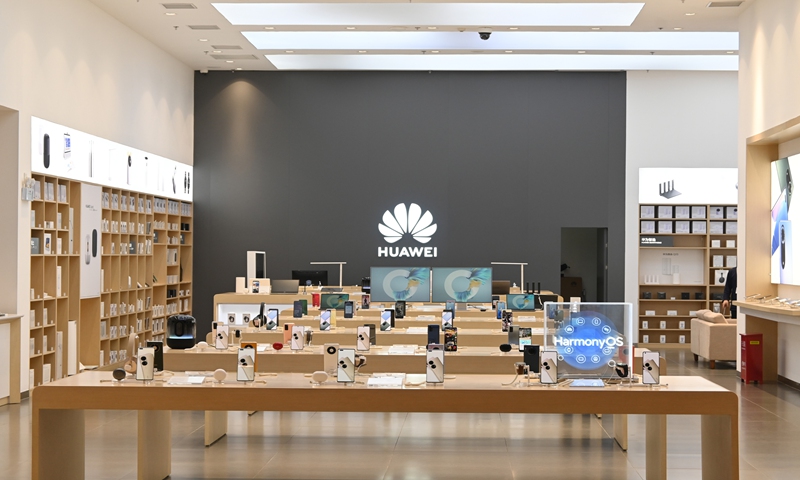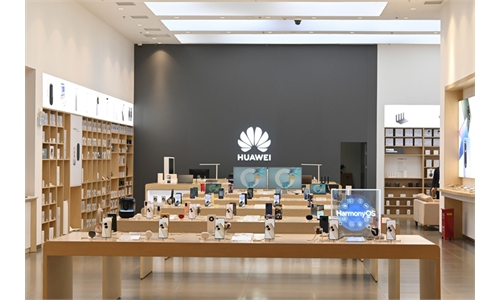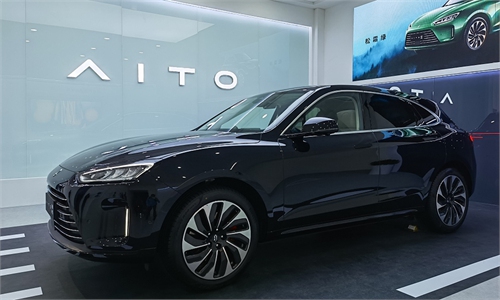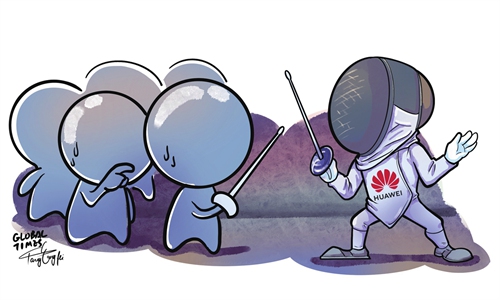
A flagship store of Huawei Photo: VCG
Chinese telecommunications firm Huawei set up a precision manufacturing unit with registered capital of 600 million yuan ($94.18 million) on Tuesday, expanding its drive to build a self-reliant industry chain.According to domestic corporate portal Qichacha, the company, wholly owned by Huawei, will run businesses ranging from the production of optical communication equipment and optoelectronic devices to electronic components and discrete semiconductor devices.
Huawei told the Global Times on Tuesday that the new division will mainly focus on the packaging, testing and assembling of high-end devices, modules, components in the fields of optoelectronics, wireless, digital energy, smart cars, and other terminal products.
The division will also have the abilities of "a certain scale of mass production and small batch trial production," but its output will only be used to meet the system integration requirements of Huawei's own products, according to Huawei.
Huawei clarified some domestic media reports that the precision manufacturing firm won't make chips. Analysts said the move is in line with Huawei's ambition of resolving stranglehold problems ranging from chip shortages to software cuts.
Although the new company isn't making chips, its business is seemingly centered around the chipmaking industry, Xiang Ligang, director-general of the Beijing-based Information Consumption Alliance, told the Global Times on Tuesday.
"For some especially important sectors, such as precision manufacturing, Huawei chooses to do this on its own," Xiang said.
He added that "we still can't get a clear picture of the company's chip plans, but in one or two years, with the joint efforts of the domestic chip industry, there could be some concrete results."
Over the past two years, Huawei has been expanding into the semiconductor industry chain, mainly through investment by Hubble Technology Investment, its fully owned subsidiary. The subsidiary's target fields include analog chips, silicon carbide materials, power chips, artificial intelligence chips, automotive communication chips, and connectors.
Global Times



